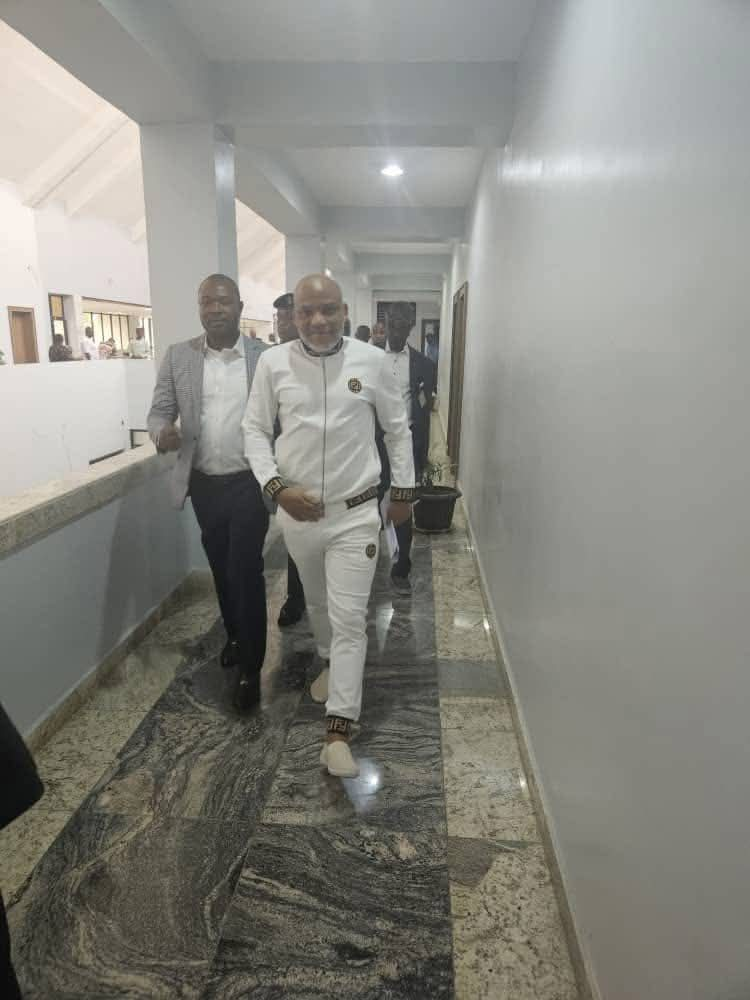Justice James Omotosho of the Federal High Court in Abuja has sentenced Nnamdi Kanu, leader of the proscribed Indigenous People of Biafra (IPOB), to life imprisonment after convicting him on seven counts of terrorism, treasonable felony, and operating an unlawful society.
Delivering judgment on Thursday, Justice Omotosho found the evidence presented by the prosecution “uncontroverted,” including audio recordings from Radio Biafra broadcasts between 2018 and 2021 in which Kanu allegedly incited violence against security forces and civilians in Nigeria’s South-East.
The court rejected the death penalty sought by the prosecution on five of the counts, opting instead for life imprisonment on the lead terrorism charge, with concurrent sentences of 20 years and five years on the remaining counts.
Drama preceded the verdict: Kanu, who has been in DSS custody since his 2021 extraordinary rendition from Kenya, was removed from the courtroom after repeatedly interrupting proceedings and demanding that the judge specify the exact laws he had violated. The trial continued in his absence.
Lead prosecutor Chief Adegboyega Awomolo (SAN) had urged the court to impose the maximum penalty, arguing that Kanu’s refusal to present a defence amounted to an admission of guilt and that justice must be served for victims of the violence linked to IPOB activities.
Kanu’s counsel, Alloy Ejimakor, had earlier challenged the court’s jurisdiction and contended that some of the charges were based on repealed provisions of the Terrorism Act. The court overruled those objections.
The case has been one of Nigeria’s most politically charged trials in recent years. Originally arrested in 2015, Kanu jumped bail in 2017. A 2023 Court of Appeal ruling discharging him was overturned by the Supreme Court, which ordered the trial to continue.
Reaction to the sentence has been sharply divided. Supporters of the separatist leader have denounced the verdict as “judicial persecution,” while others hailed it as a decisive blow against violent agitation.
No formal notice of appeal has been filed yet, but Kanu’s legal team has consistently indicated plans to challenge any adverse ruling up to the Supreme Court.
The judgment comes amid ongoing security challenges in the South-East, where sit-at-home orders and attacks attributed to IPOB’s armed wing have disrupted economic and social life for several years.

